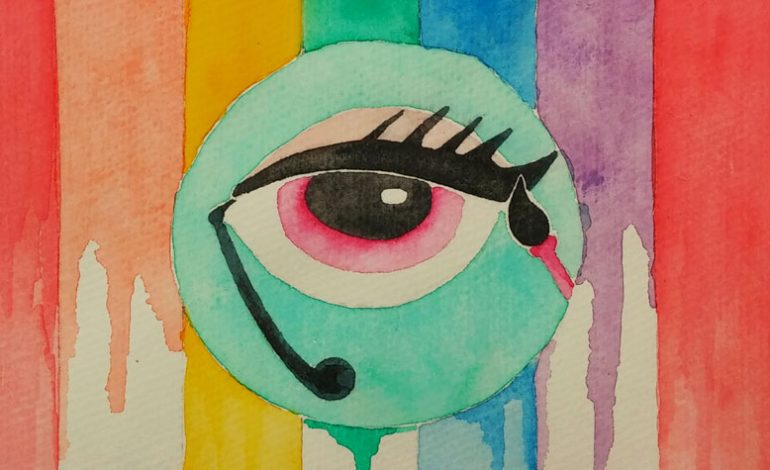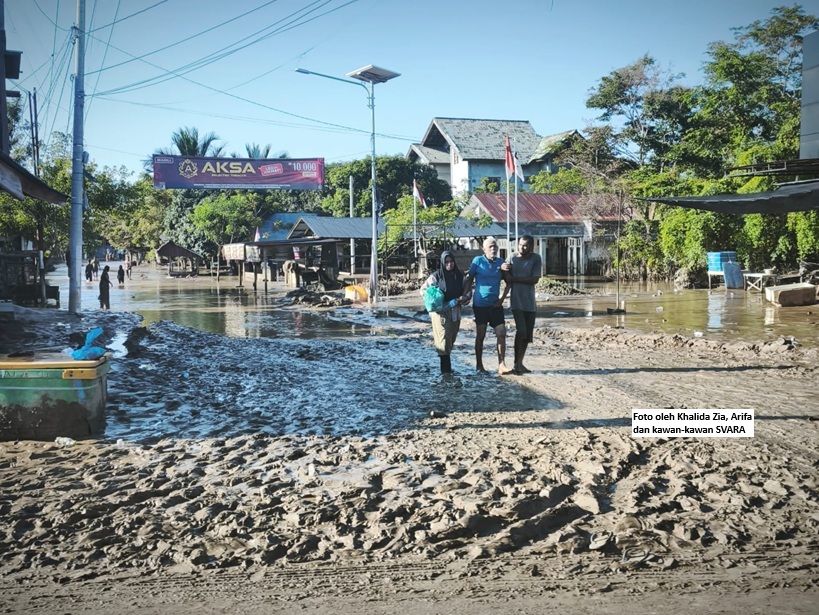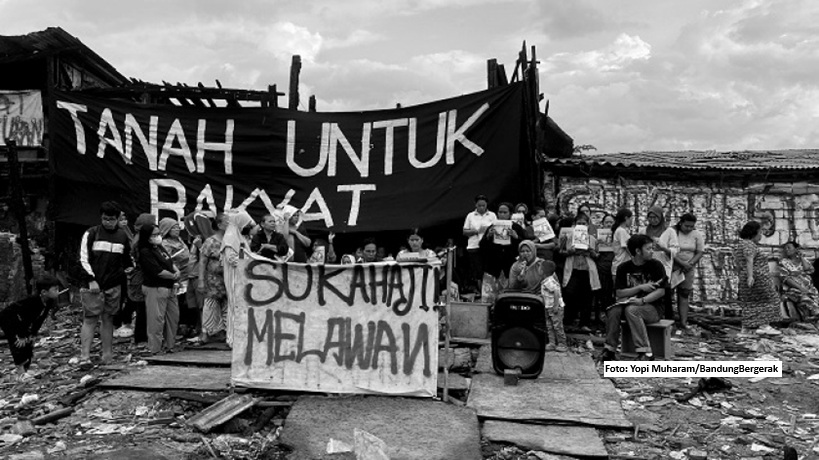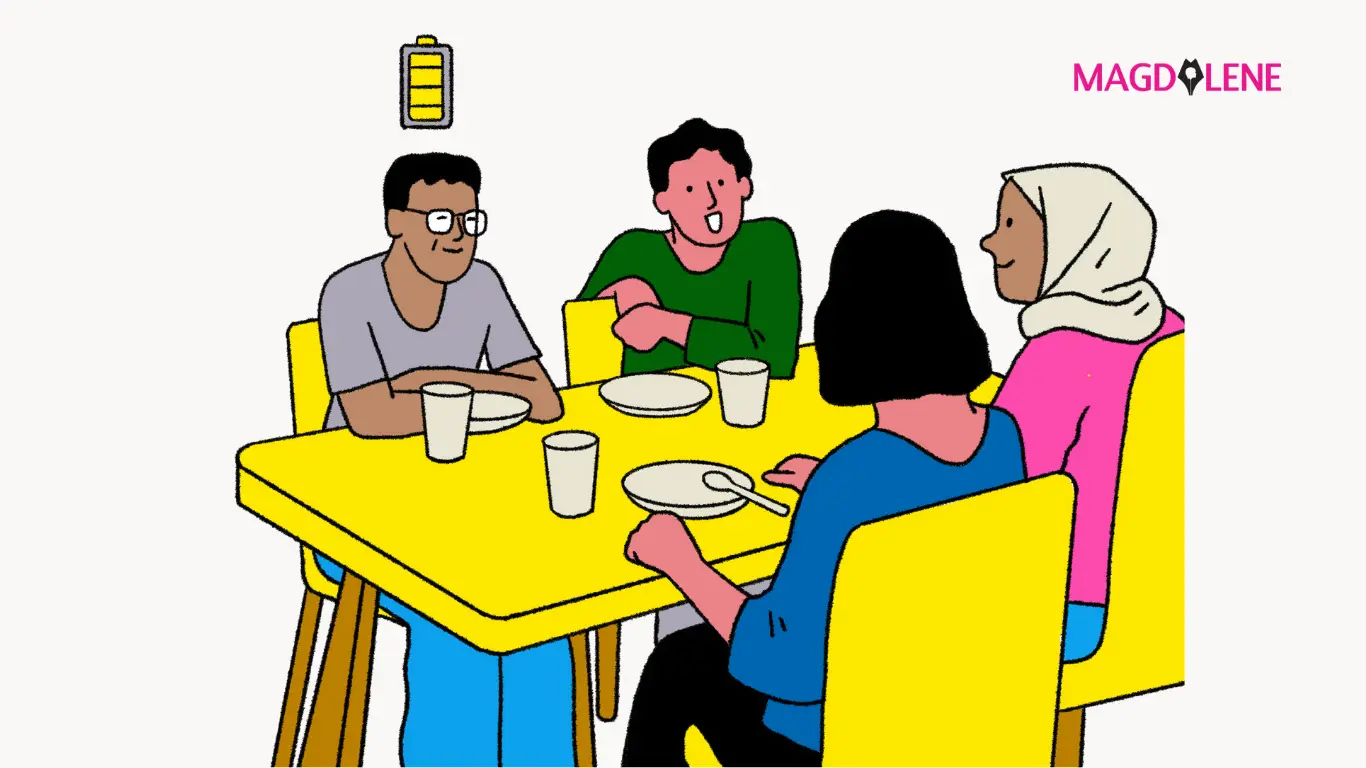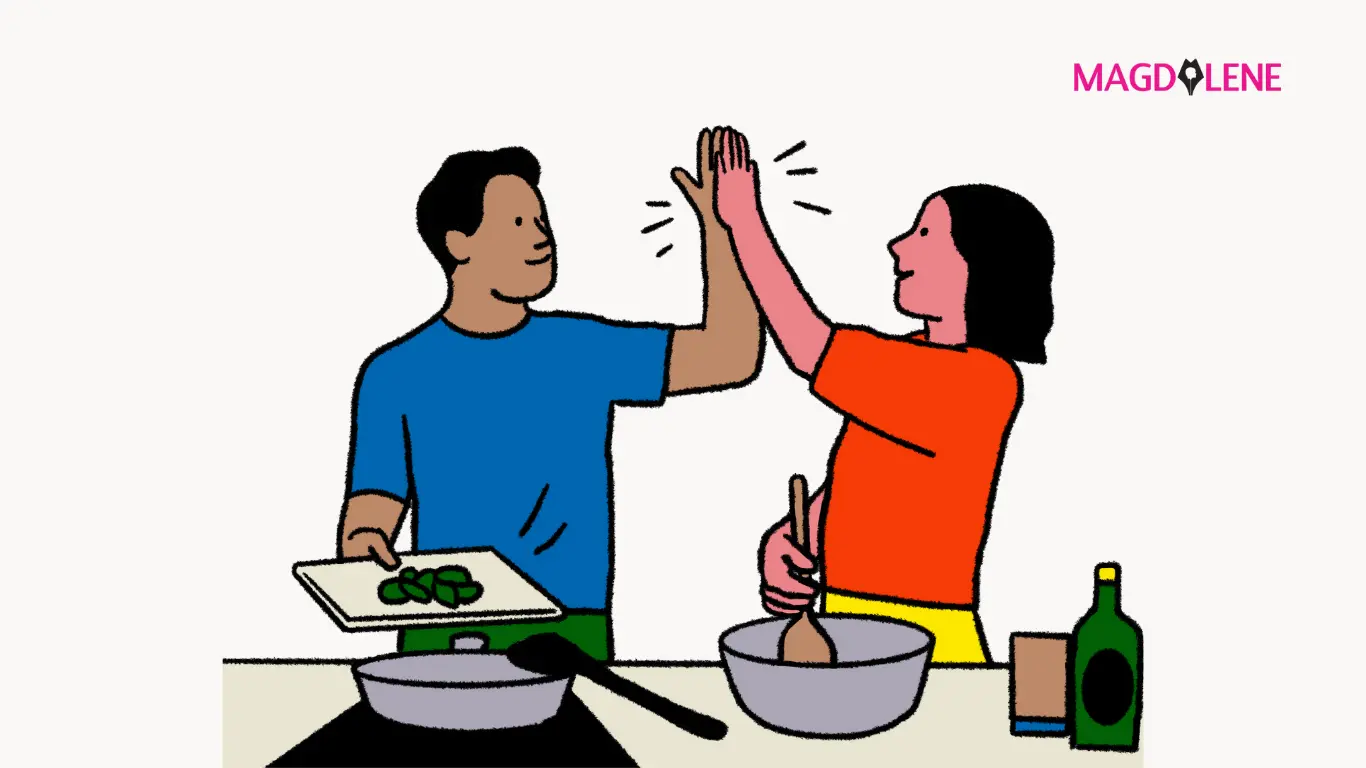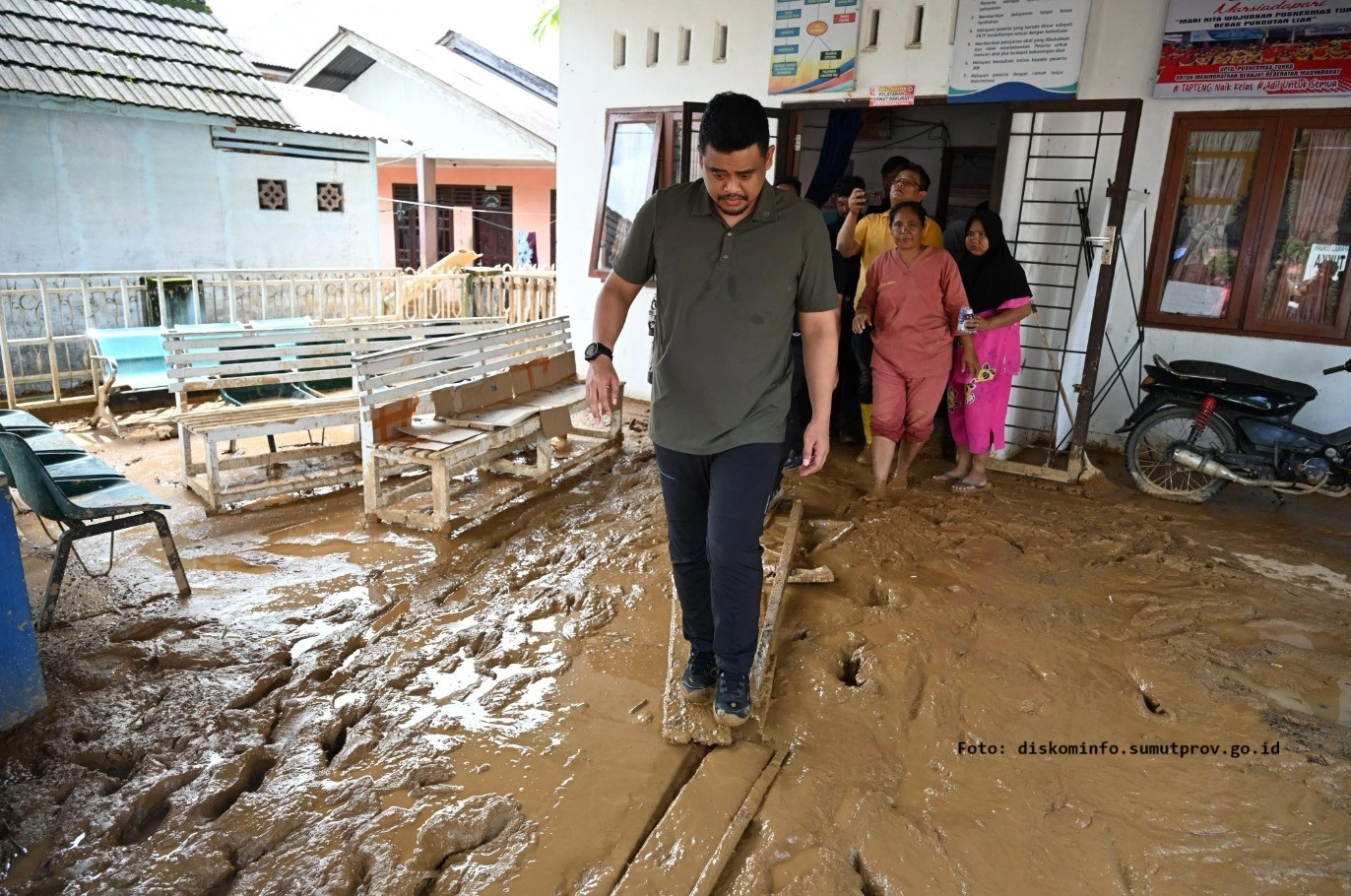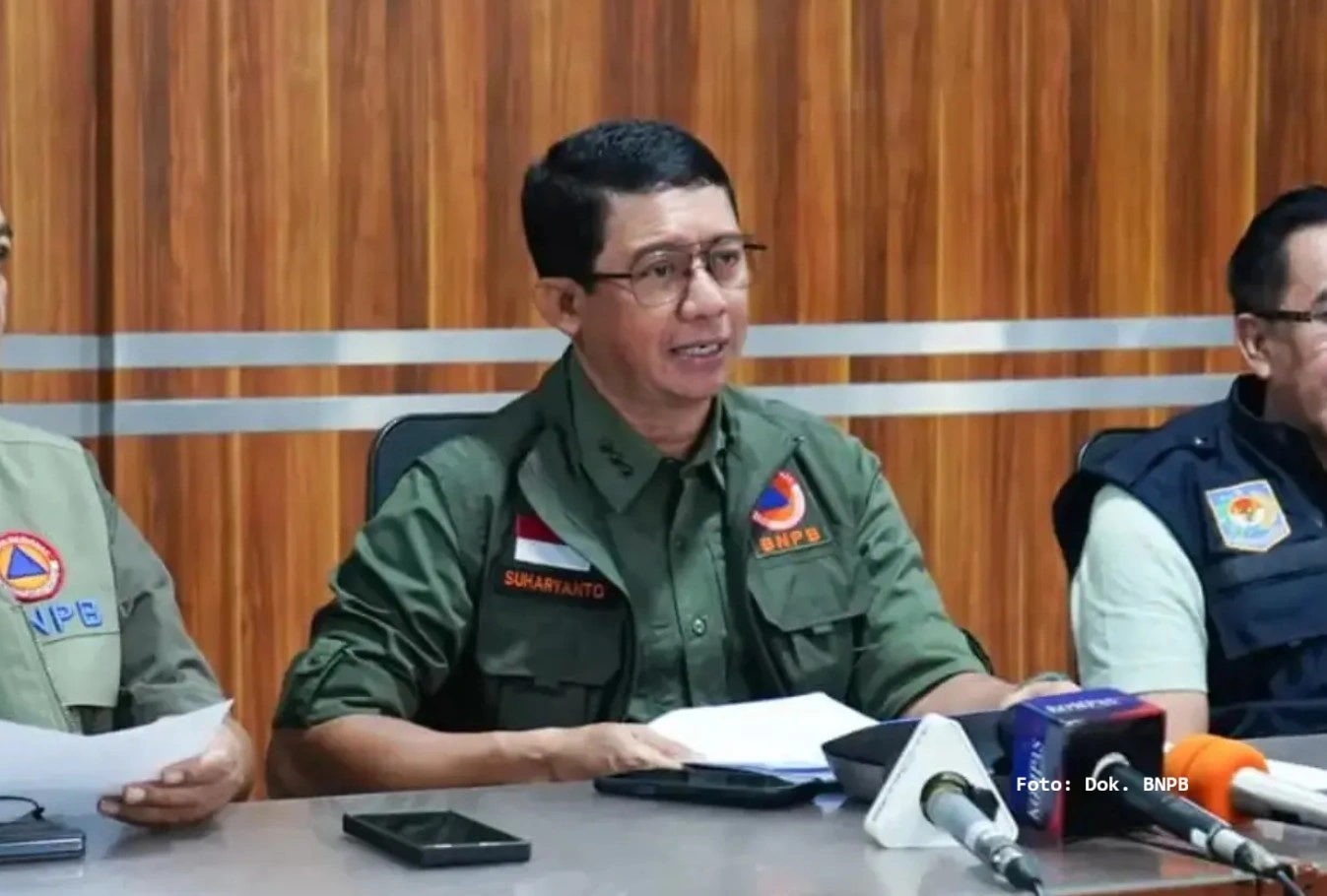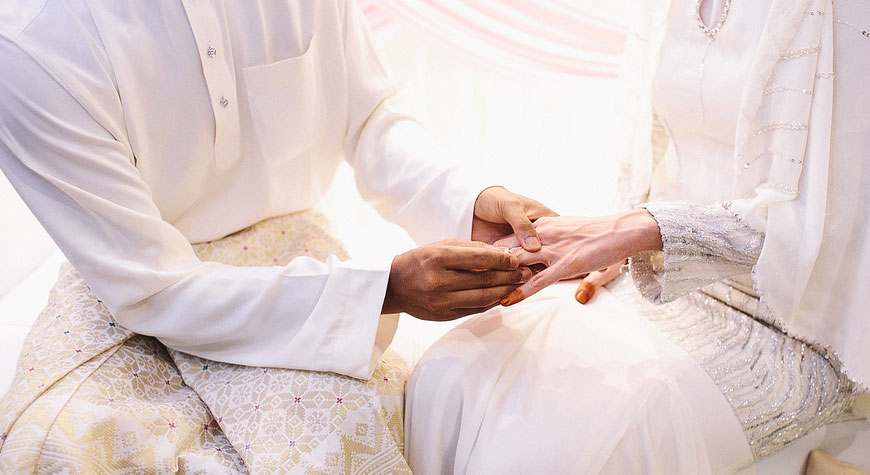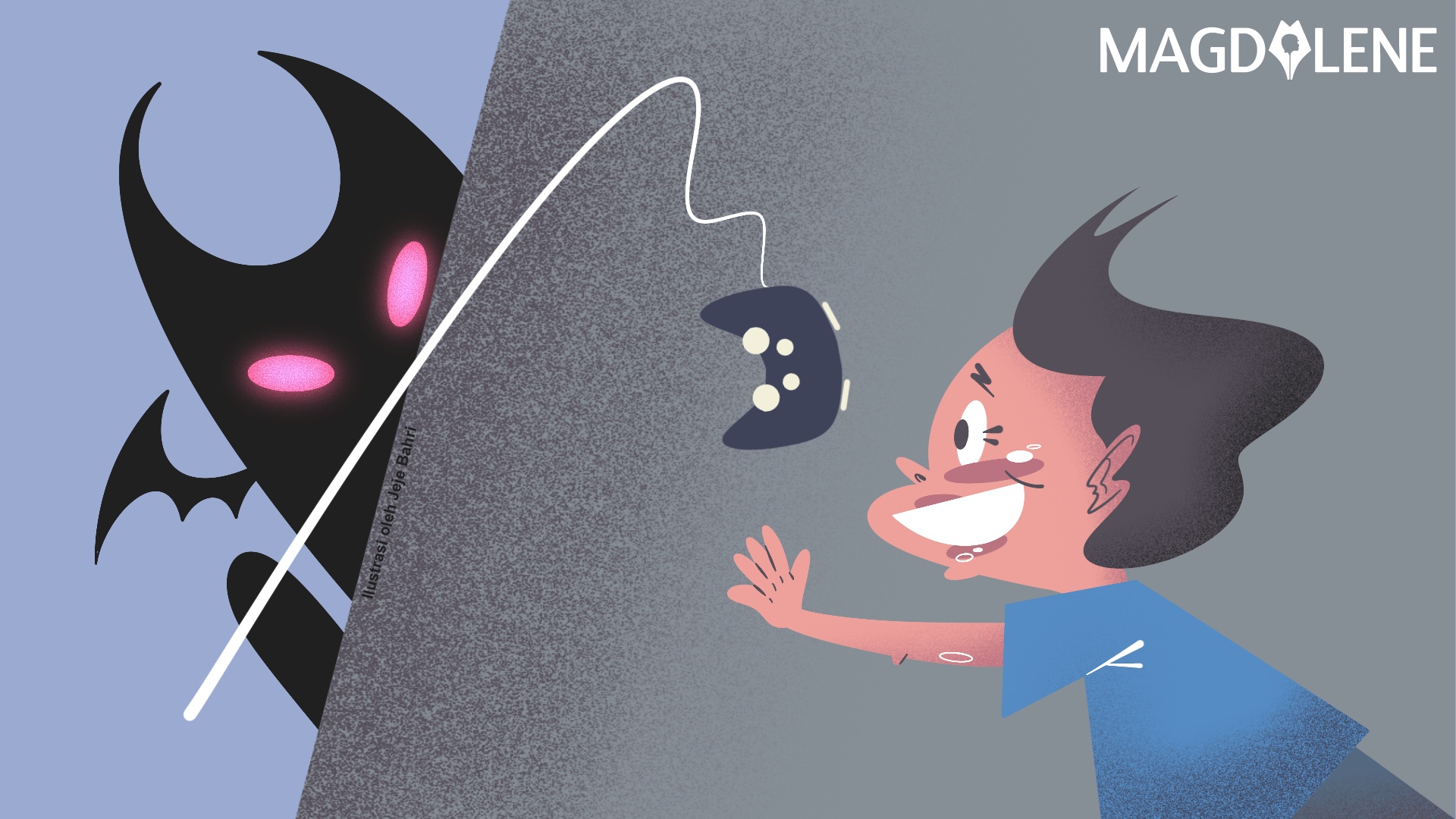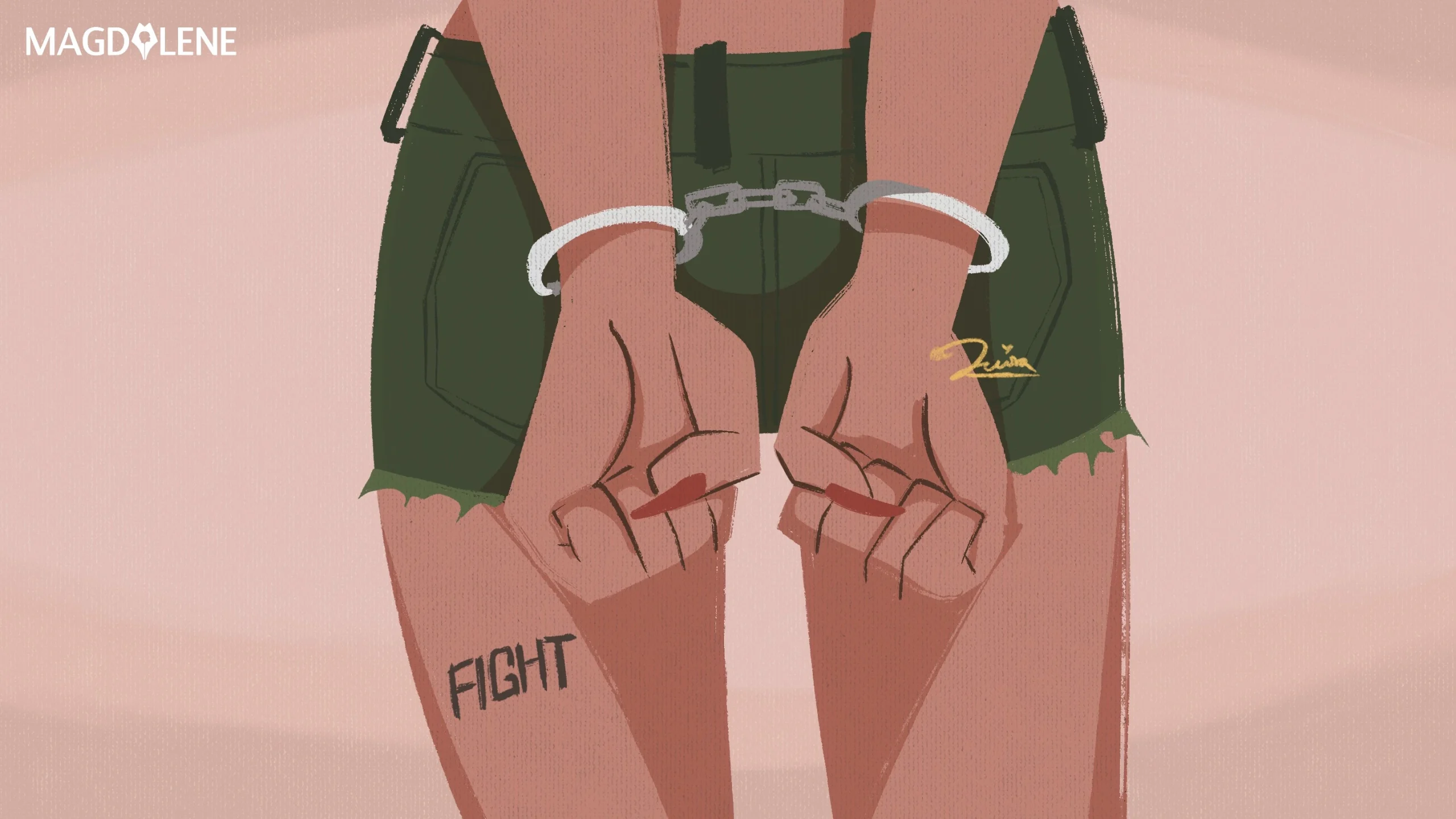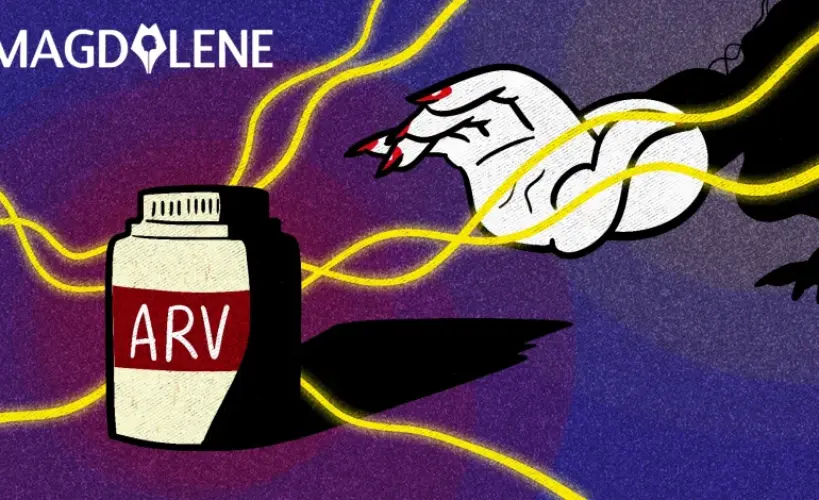Three Hijabed 16 Year Olds Now an Unlikely Heavy Metal Rock Stars
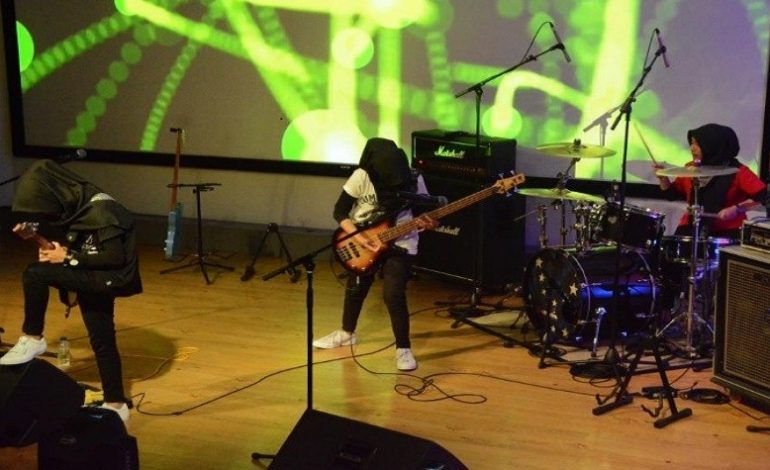
Metal bands are usually identical with screams and shouts and men wearing black, but deep in West Java’s rural region, three sixteen-year-old hijab-covered teenage girls have shown the borderless world of music, breathing fresh air into the typically masculine heavy metal scene.
Voice of Baceprot (VoB) is a metal group formed in February 2014 by vocalist and guitarist Firdda Kurnia, drummer Euis Siti Aisyah and bassist Widi Rahmawati. They come from the unlikeliest place, the largely conservative Singajaya, South of Garut, a place – in their own words – located “beyond hills and valleys”, and have quickly won the hearts of music fans and the media.
Firdda and Siti had been friends since primary school when they met Widi in the vocational high school SMK Insan Mandiri Garut, where all three are studying Office Administration. Their story started when Firdda was writing for her school’s wall-magazine.
“I wrote about the time when I was punished because I was late for school, and how a teacher who was also late was not even punished,” recalled Firdda.
She borrowed the schools’ counselor Esra Satia’s laptop to write the protest essay. It was eventually taken down by the school for being too critical, but by then the girls had discovered heavy metal music on their teacher’s laptop, having pored over his music collection.
“I just fell in love with metal since that first time I heard it. It felt so rebellious,” Firdda told Magdalene in an interview at Pacific Place, South Jakarta. “I think we found ourselves in the music.”
So with the assistance of “Abah” Esra, they began to take up music, making do with whatever instruments they had. None of them had any experience playing any instruments at all. Esra taught Widi, who had never even seen a bass before, how to play bass using a cheap acoustic guitar (an “old rotten guitar,” as he referred to it) that had been modified.
“Of course it wasn’t easy. The acoustic guitar shape is extremely different from the real bass. But she learned anyway, and we could see that she played really well, right?” he said.
As for the drum, Esra upcycled the school’s marching band’s percussions create the sound of a drum set.
“The girls were really proud of the instruments that I created. I, too, am proud, to see the improvement they have made throughout this journey,” he said.
To this day, the girls still show up to practice diligently every day after school, honing thrash metal riffs and brainstorming original lyrics.
“Mostly we like bands from outside,” said Firdda.
Her bandmate, Widi, added: “You know, Slipknot, System of a Down and Linkin Park.”
The word “Baceprot” is a slang word in their ethnic Sundanese language that means “noisy” and their fan base is called “Balaceprot”. During a performance at @America in Jakarta last week, they were dressed in black skinny jeans, matching black headscarves and thigh-length T-shirts bearing VoB. Their merchandise boasts VoB’s tagline: “The other side of metallism.
The band is now blasting its way into Indonesia’s heavy metal music scene, winning acclaim and appearing on national television. They have also been covered by local and international media. But their popularity has also brought them death threats and hate mail, and they are criticized by the more religiously conservative as being un-Islamic.
“Many people think that metal music is satanic but we are showing that there is a different shade, a different side to the music,” said Ersa, who is now the band’s manager.
Esra, has received threatening phone calls pressuring him to dissolve the band. Once, some religious leaders pulled out the power cord to stop the sound while the band was playing on stage.
At home, the girls’ parents were initially uneasy too.
“My parents were shocked when they saw me coming home with a guitar. They strongly opposed me playing,” said Fridda.
Siti talked about her sister and father were baffled by her fondness for heavy metal music, while Widi said her parents were angry and told her to listen only to Sundanese songs.
Today, the girls’ parents were proud of them, however, especially as they watch the band performing on TV. They have since also increasingly gained the support of their community.
“We can play metal and protect our morals. Of course Islam and metal can match. Why not?” said Esra.
Though their school has not really given its full support to the girls, it doesn’t stop the girl from going further.
“We once invited our principal to watch us play, but he said that music is “a (product of) the jahiliyah’ (the age of ignorance). He believes that music is haram, and women who play music are bad,” explained Firdda.
The masculine trait of the heavy metal scene also means they didn’t see other young women as much.
“It is hard to have fans that are in our age, let alone girls,” said Siti, adding their school friends prefer to listen to the pop band Virgoun.
VoB is currently preparing their first debut album which will contain eight songs.
“We haven’t decided the title for our album yet. But we are open to our fans, Balaceprot, who might have an idea for what our album should be titled,” Firdda said giggling.
Though the band plays mostly covers ranging from western to local songs, they have already written four original songs and are in the process of writing the fifth one for the album. One of their songs, “The Enemy of the Earth is You” is an original song about the environment, while “The Sound of Student Sou” is about the state of education in their country.
“I think what we want to say to the young women of Indonesia is, don’t be afraid of being different. Don’t be afraid to shout your independence,” Firdda added.
Find out how about how we should not let extremists control our lives.


